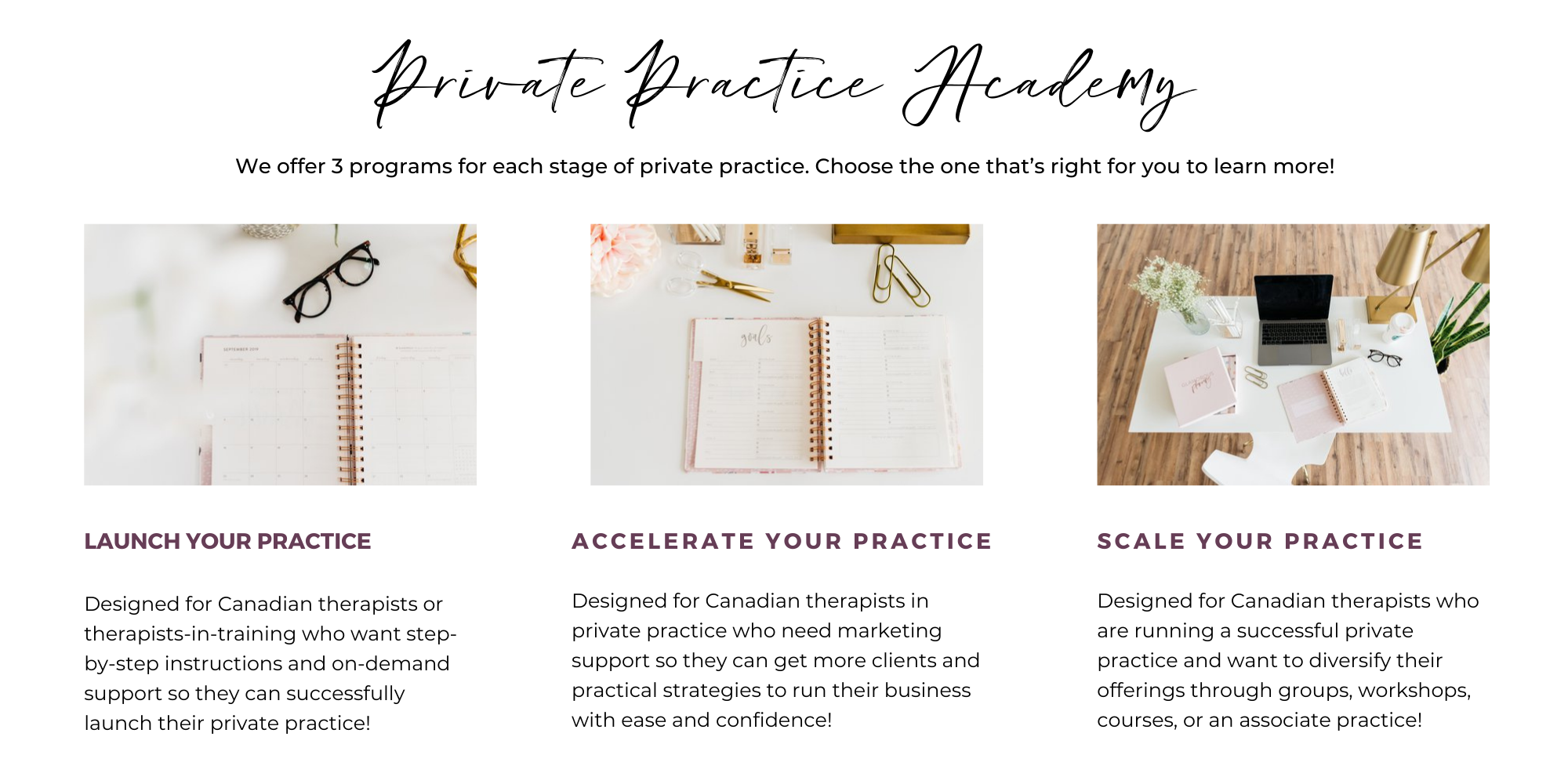How Important is Having a Niche in Private Practice Success?
I chose to write about this topic this week because it’s one of the most frequently asked questions I get from therapists who are trying to grow their practice. Along with questions about marketing and getting new clients, therapists in private practice want to know: “Do I need a specific niche in order to be successful? ”Which is often followed by…“But I don’t know what my niche is!” or…“I don’t really want to narrow down my clientele that much. I like working with a diverse range of clients.” I wish this question had a simple black and white answer, but it doesn’t.
First, I want you to know that if you don’t know what your niche is, that’s okay. And if you don’t want to narrow down your client type, then you don’t have to. When I first started in private practice, I’d say I sort of had a niche, but I definitely wasn’t very clear about it. In fact, I purposely marketed myself this way to capture a broad range of clients. On my website and Psychology Today profile, I simply stated that I worked with adult men and women who were experiencing stress, anxiety, depression, symptoms of trauma, and relationship issues. One could argue that that is a niche, but it’s a really broad one! The thing is, it worked for me. But the reason it worked is because I already had an extensive network of potential clients and referral sources! I had strong word-of-mouth referral sources and a lot of people who already knew who I was. That “know-like-trust” factor is everything. And because I had it, I didn’t really need to “niche down.”
Now, fast forward to five years later, and I do have a very specific niche for business mentorship. My niche in business mentorship is “Canadian counsellors and therapists who are dreaming of having a successful private practice” (that’s most likely you!). That’s a pretty narrow niche, and it’s necessary because if my niche was simply “therapists and counsellors,” or “entrepreneurs,” it would be way too broad, and it wouldn’t catch anyone’s attention. The reason this wouldn’t have worked for me is because I didn’t have as extensive a network for this niche as I did when I went into private practice— not many people were aware of the services I offered. In order for online marketing (or any form of marketing) to be effective, it needs to be targeted. So, how does all of this apply to you? And how do you know whether or not you need to have a niche? Here’s how to tell. If you’re already in private practice, and you have a full (or pretty full) caseload, and you don’t have an issue with obtaining new clients, then you probably don’t need to have a specific niche (at least not right now). If you have a vast network of referral sources, and you’re not worried about people talking you up and sending new clients your way, then you probably don’t need to define your niche! That said, if you have been working on growing your practice for a while and it’s nothing but crickets, or you’ve been holding steady at a few clients per week but are unable to fill your caseload, having a niche could be really helpful. I want to be clear that this doesn’t mean that you will only ever get to work with one client type ever again! You can certainly have more than one niche, and you can switch up your niche over time if you like. But marketing is most effective when it is targeted.
When I have worked with therapists and counsellors who want to grow their practice, the next question I usually get asked after they realize they need a niche is: “How narrow does my niche need to be in order to be effective?” Let me give you an example. I want you to imagine that you are looking for a therapist, and you come across someone who advertises that they “treat anxiety” (and let’s say you have anxiety). How excited would you be to work with them? If it were me, I wouldn’t exactly be excited, but I would notice that they treat the thing I’m suffering from. Great! The problem is that thousands of other therapists treat the same thing. So how are you going to set yourself apart? Now imagine you came across a therapist who says they “treat women who are experiencing anxiety as a result of struggling to balance demands between work, personal life, and home” (and that’s you). Again, you’d probably resonate a lot more with that and feel an even deeper connection to that therapist. Now try this one on (and again, imagine that it describes you perfectly). “I work with women in their 20’s and 30’s who are suffering from anxiety while balancing the demands of pregnancy and child-rearing, being successful in their career, and prioritizing themselves and their partner.”WOAH – now that’s specific! And yes, you are going to turn away a lot of people who don’t fit that demographic. But the ones that do, or are close (and as you can imagine there are hundreds of thousands of people who fit this description!), are going to resonate so strongly that you will stand out like a bright shining star against the backdrop of other therapists!
So, “niching down” is necessary if you are stalled or stagnant in growing your business, and you want to catch the attention of specific clients who otherwise might overlook your profile. If you need help getting clarity on your niche, or writing your marketing material.
Feel free to check out the Private Practice Readiness Workbook. If you need support with your private practice, please schedule a free Discovery Call with one of our coaches!

